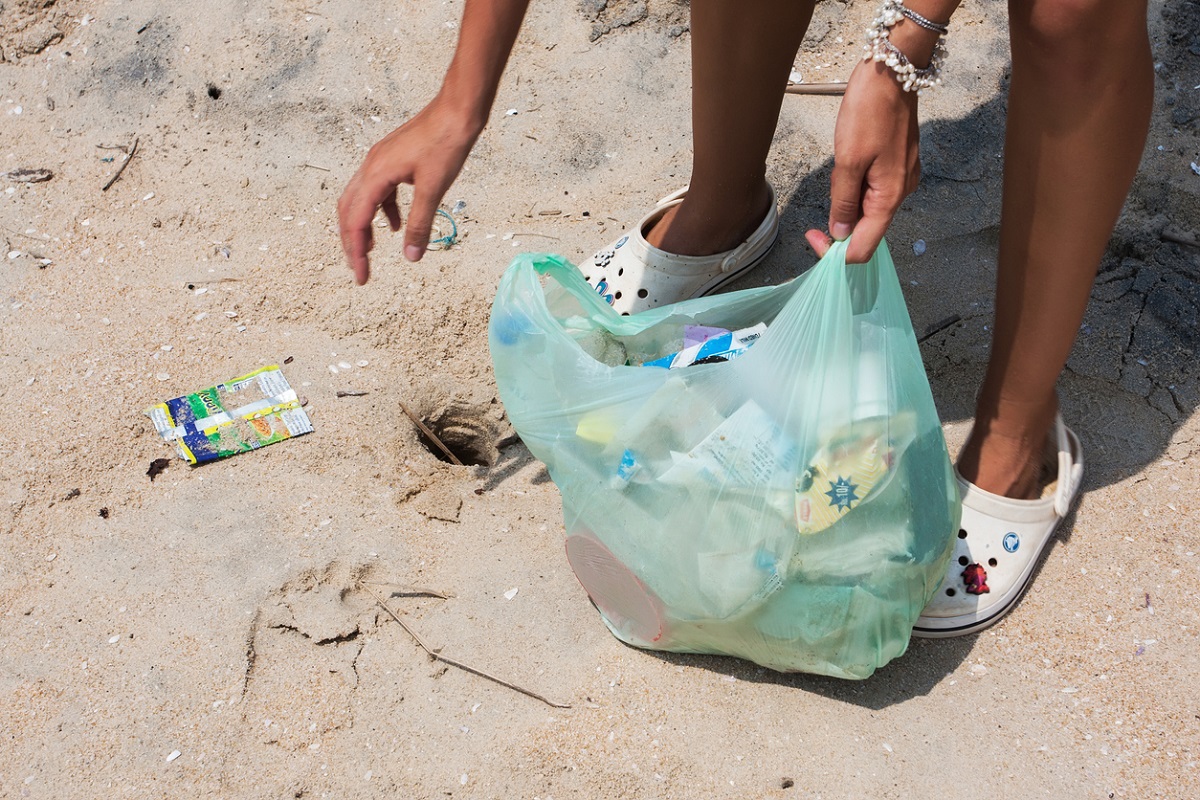According to a recent research by the Indian Institute of Science, Bengaluru, plastic can be replaced, as they have found a way to make a substitute for the single-use plastic that is biodegradable and will cause no harm to the environment.
As we all know, the government has announced the ban on 19 single-use plastic products from July 1. The move has been wholeheartedly welcomed by everyone as a step in the right direction as 3.3 million metric tonne of plastic is generated by the country every year as per the data of the Central Pollution Control Board, India.
In a recent research, plastic is now entering our bloodstream via air, water, and food. The Plastic Soup Foundation took an initiative in 2018 and founded the Plastic Health Coalition. This collaboration involved a number of national and international environmental and scientific research organisations that deal with the effects of (micro) plastic on our health.
Analytical studies were conducted and a large dataset was created of the occurrence of plastic particles in various matrices including biota (or gut contents) (Boerger et al., 2010, Karlsson et al., 2017, Ugwu et al., 2021), air (Gasperi et al., 2018, Wright et al., 2021), water (Koelmans et al., 2019, Danopoulos et al., 2020, Schymanski et al., 2021). These plastic components are harmful for our body.
But the question arises, how will the plastic industry be replaced with something which won’t harm the environment.
To answer this question, we have to find an alternative to single-use plastic.
According to a recent research by the Indian Institute of Science, Bengaluru, plastic can be replaced, as they have found a way to make a substitute for the single-use plastic that is biodegradable and will cause no harm to the environment.
In the research, non-edible castor oil was used in the process of making the polymer. These polymers can be moulded into sheets which will be very useful to make cutlery, plates, cups, etc.
The growing demand for single-use plastic (SUP) has given rise to its production and managing the landfills choked with SUPs which is becoming very difficult. This dependency requires an alternative that could shift the dependency from SUPs to a better alternative, especially in the packaging sector.
To overcome these SUP-related problems, the youth are also coming forward to create new and sustainable alternatives.
A young enviropreneur from Shimla, Shivani Chauhan, launched a start-up company named “Green Viables” which aims to provide sustainable packaging solutions. The initial product that she created was an alternative to plastic films – a biopolymer film. The Biopolymer film was created in accordance with the State Industrial Department at the Biotechnology Incubation Centre under the guidance of Dr. Arvind Kumar Bhatt and Dr. Ravi Kant Bhatia.
The Prototype was selected at the National Start-up Pitch Session conducted in accordance with IIT Delhi. A much-needed alternative to plastic films, biopolymer film will initially cater to sectors like textiles, groceries, bakeries, and agriculture.
While interacting with The Statesman, Shivani stated, “There’s always a better way to make things we want, a way that doesn’t harm the environment. We have a duty to care for the environment. Being sustainable is not a matter of choice anymore, it is a necessity.”
Narrating the story about her company, she said, “Green Viables was started amidst the covid-19 pandemic. Being a bachelor in Microbiology Hons’ the idea came with the existence of my educational background. However, with the increasing carbon footprint and degradation of the environment, a necessity was felt where a sustainable-approach adaptation was much needed.
Green Viables is a bio-packaging company that aims at making things better without harming the environment. The start-up company aims at bringing a revolution in the packaging industry.”
Advertisement











